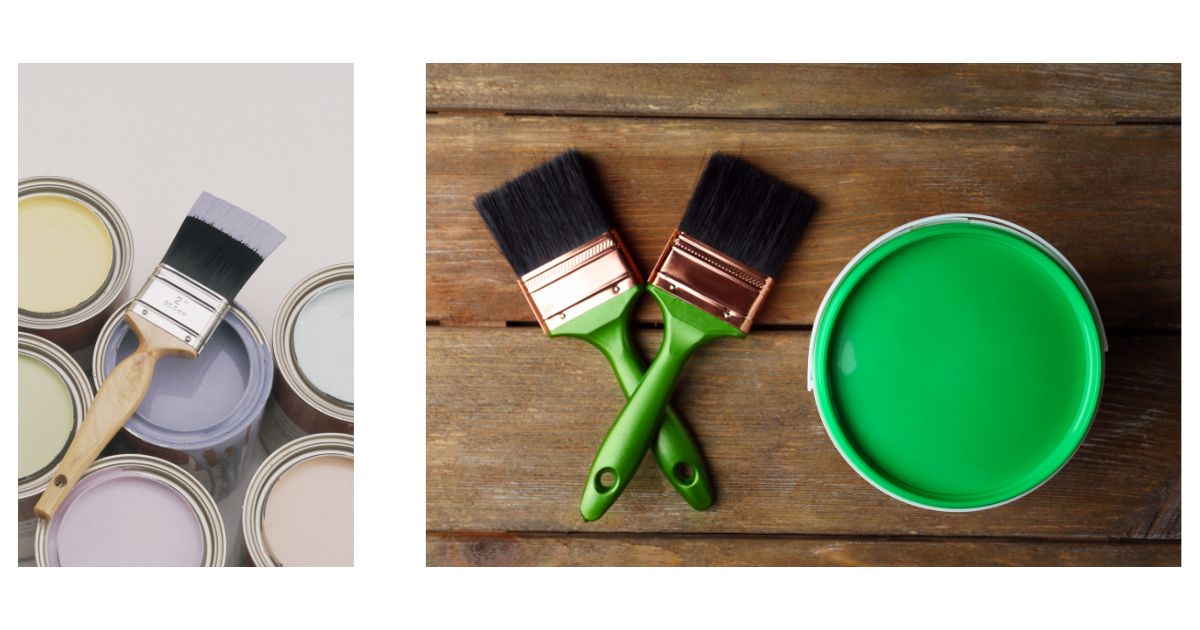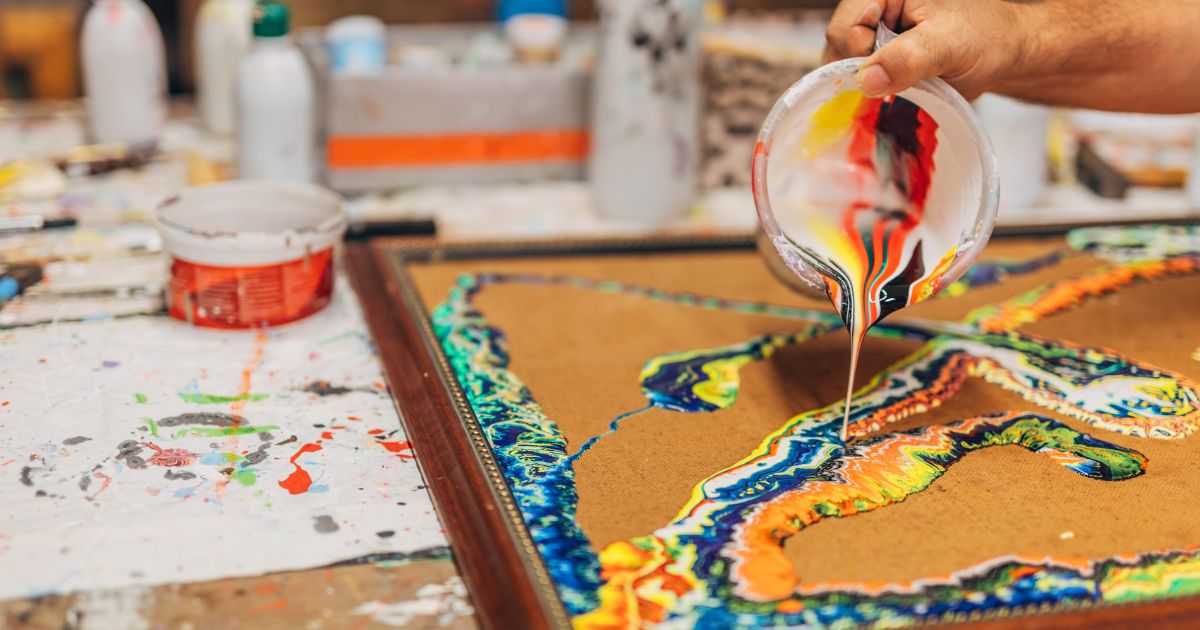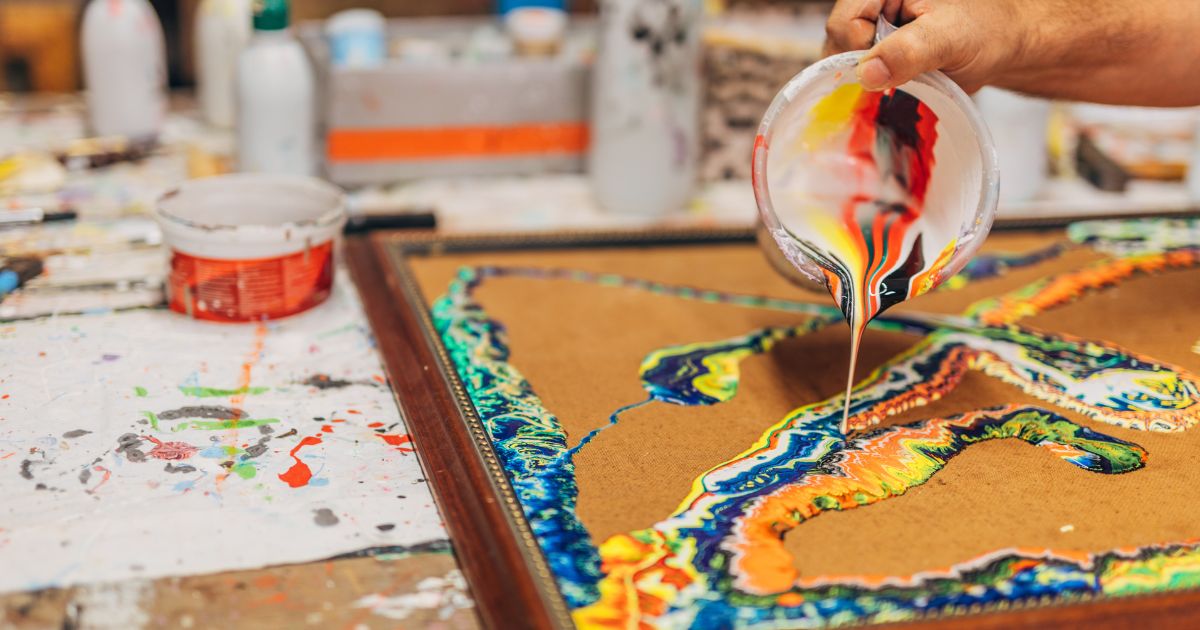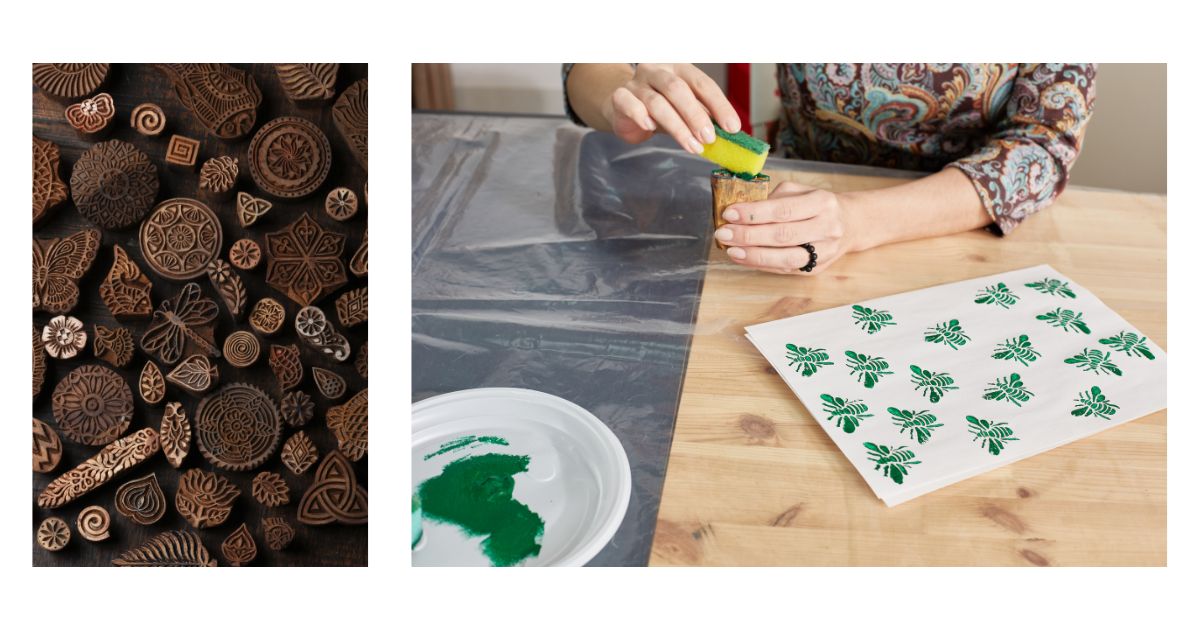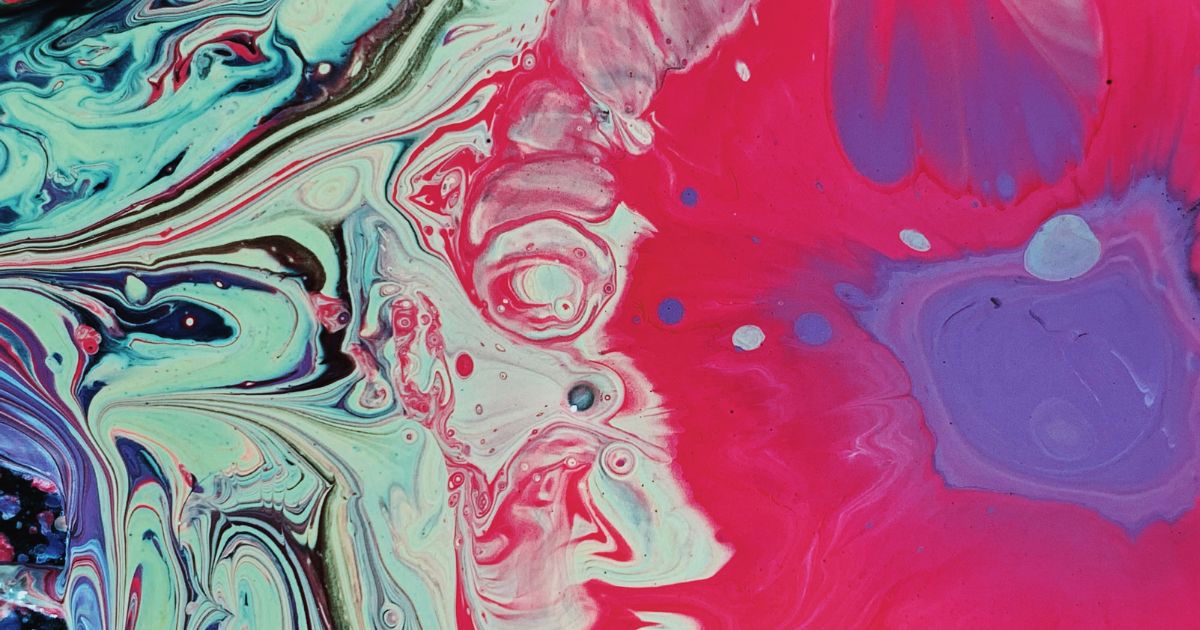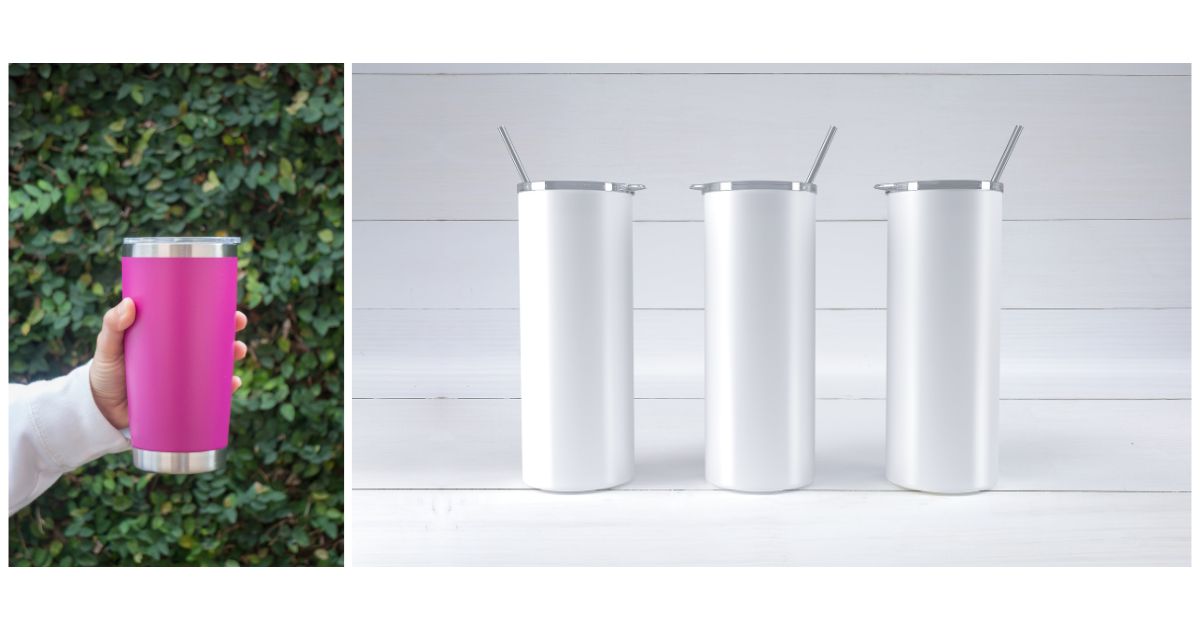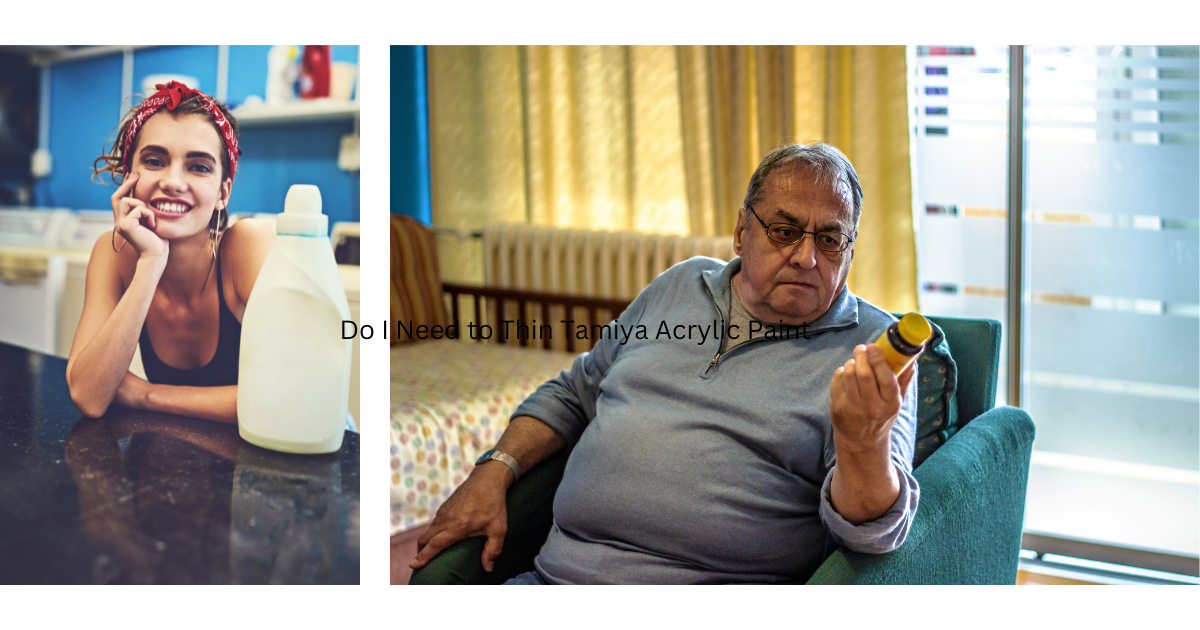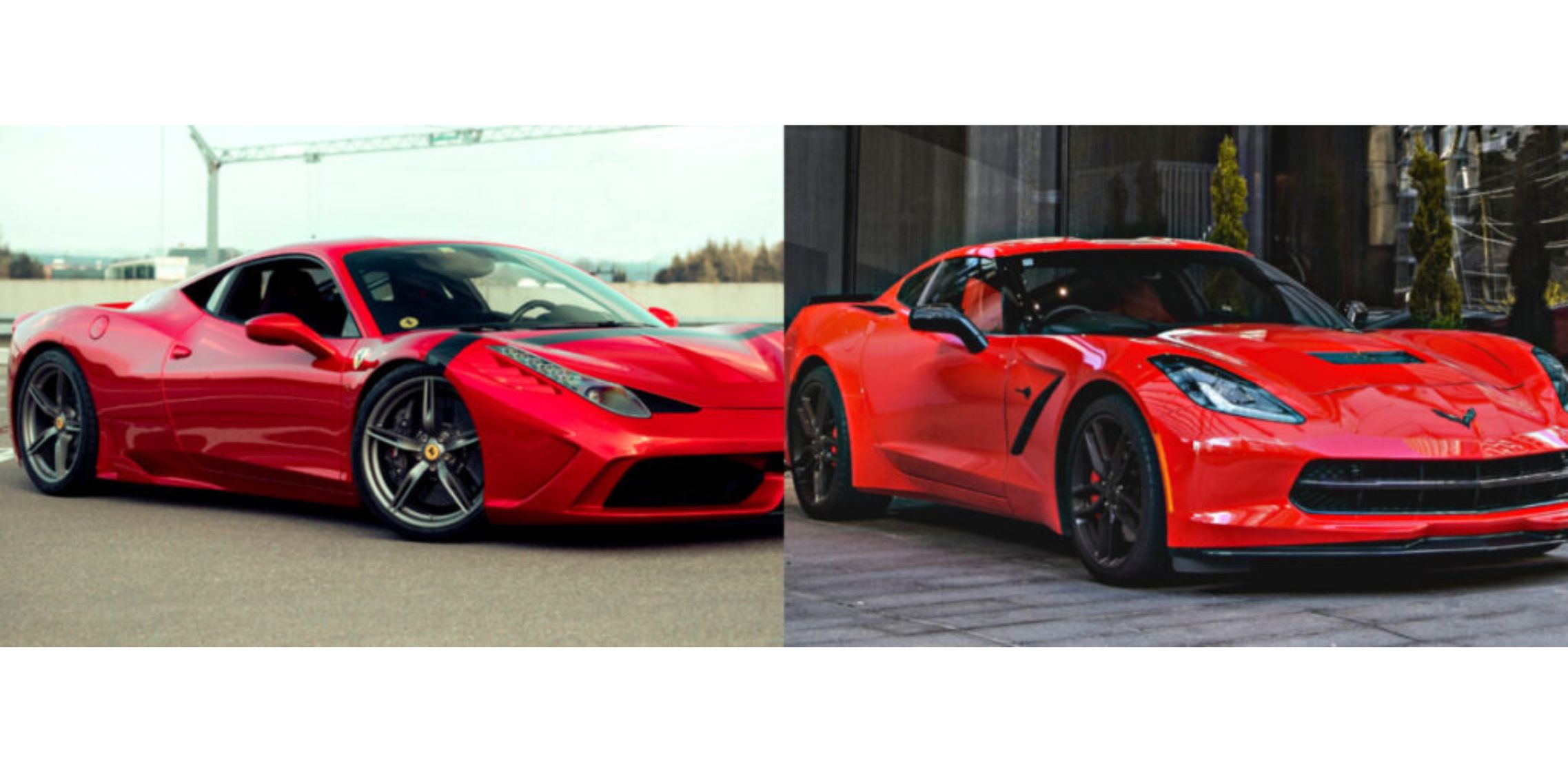Oil paint is made with a base of oil and pigment, while plastic paint is made from synthetic resins. Plastic paint dries harder and is less brittle than oil paint, making it more resistant to damage. However, oil paints have better color retention and are less likely to yellow over time.
When it comes to choosing the right type of paint for your project, it is important to understand the difference between plastic paint and oil paint. Here is a quick rundown of the key differences between these two types of paint:
- Plastic Paint: Plastic paint is typically made from synthetic resin and can provide a tough, durable finish. This type of paint is ideal for surfaces that will see a lot of wear and tear, such as walls in high-traffic areas or outdoors. However, because it dries hard, plastic paint can be difficult to work with and may require special primers and topcoats.
- Oil Paint: Oil paint is made from natural pigments that are suspended in an oil medium. This type of paint has been used for centuries and offers a rich, deep color that can be beautiful on its own or layered with other colors. Oil paints take longer to dry than plastic paints, but they are typically much easier to work with.
Emulsion Paint vs Enamel Paint | Water Based Paint vs Oil Based Paint | What is plastic paint?
Difference between Plastic Paint And Royale Paint
It is very important to know the difference between plastic paint and Royale paint because they are two completely different products. Here is a breakdown of the differences: Plastic Paint: This type of paint is made with a synthetic resin that gives it a glossy finish.
It is also chip resistant and can be used on many different surfaces. Plastic paint is ideal for areas that need to be protected from moisture or heat. Royale Paint: This type of paint is made with natural ingredients like minerals and plant extracts.
It has a matte finish and can be used on many different surfaces. Royale paint is ideal for areas where you want to create a natural look or feel.
Plastic Paint Price 20 Liter
As the plastic paint price of 20 liters is very high, many people are wondering why. The answer is simple – because it’s a new product and the market for it is still small. However, there are some good reasons to buy this product anyway.
First of all, it’s much more durable than regular paint. It will last for years without needing to be replaced, which means you save money in the long run. Secondly, it’s also much easier to apply and doesn’t require any special skills or equipment.
Finally, it gives a beautiful glossy finish that really makes your home stand out from the crowd. So if you’re thinking about giving your home a makeover and want something that will really last, then consider plastic paint. Yes, the initial investment may be higher than regular paint but in the long term you’ll definitely save money – and your home will look amazing!
Difference between Plastic Paint And Emulsion
If you’re planning on giving your home a fresh coat of paint, you may be wondering what the difference is between plastic paint and emulsion. The emulsion is the most common type of paint used in homes, as it’s durable and easy to apply. Plastic paint, on the other hand, is more commonly used for commercial applications or outdoors due to its weather-resistant properties.
Here’s a closer look at the key differences between these two types of paint: Appearance: Emulsion has a matte finish, while plastic paint has a glossy finish. The emulsion has a matte finish, while plastic paint has a glossy finish.
Application: Emulsion is typically applied with a brush or roller, while plastic paint can be sprayed on. The emulsion is typically applied with a brush or roller, while plastic paint can be sprayed on. Drying time: Emulsion dries relatively quickly (within an hour), while plastic paint takes longer to dry (several hours).
Emulsion dries relatively quickly (within an hour), while plastic paint takes longer to dry (several hours). Durability: Emulsion is resistant to most household cleaners and mildew, but it can fade over time. Plastic paint is more durable and resists fading better than emulsion.
However, it’s also more difficult to remove if you decide to change colors down the road.
What is Plastic Paint
Plastic paint is a type of paint that is specifically designed for use on plastic surfaces. It is usually made from a synthetic resin, such as acrylic or polyurethane, and can be either water-based or solvent-based. Plastic paint typically has good adhesion to plastic surfaces and can provide a durable and long-lasting finish.
Price Difference between Distemper And Plastic Paint
When it comes to painting your home, there are a lot of different options out there. One type of paint that you may come across is distemper. Distemper is a water-based paint that is made from animal byproducts.
It has been used for centuries and is known for its durability. However, it can be difficult to work with and doesn’t always give the best results. Plastic paint, on the other hand, is a newer type of paint that is made from synthetic materials.
It is much easier to work with than distemper and can provide a better finish. However, it is more expensive than distemper and may not last as long. So, which one should you choose?
Ultimately, the decision comes down to personal preference and budget. If you want an easy-to-use paint that will give you good results, plastic paint is the way to go. But if you’re on a tight budget or want paint that is more durable, then distemper may be the better choice.
Difference between Distemper And Plastic Paint
When it comes to painting, there are two main types: distemper and plastic. But what’s the difference between the two? Distemper is a water-based paint that has been around for centuries.
It’s made from a mixture of chalk or limestone and water and can be thinned down with water if necessary. Distemper is very porous, so it’s ideal for absorbent surfaces like plaster or wood. However, it’s not very durable and can’t be used on surfaces that will be exposed to sunlight or moisture.
Plastic paint, on the other hand, is made from synthetic resins and pigments. It’s more durable than distemper and can be used on a variety of surfaces, including metal, glass, and plastic. However, it takes longer to dry than distemper and can yellow over time.
Oil Bond Paint 20 Litre Price
Oil bond paint is a type of paint that is made with oil and water. It is usually used for painting walls and ceilings. This type of paint is very durable and it can last for many years.
The price of oil bond paint varies depending on the brand, but it is typically more expensive than other types of paint.
Difference between Emulsion Paint And Enamel Paint
There are two types of paint that are commonly used for painting projects: emulsion paint and enamel paint. Both have their own unique benefits and drawbacks, so it’s important to choose the right type of paint for your project. Here’s a look at the key differences between emulsion paint and enamel paint:
Emulsion Paint Emulsion paint is water-based paint, which means it’s easy to clean up and is less likely to cause irritation if you get it on your skin. It dries quickly and has a matte finish, so it’s a good choice for walls that don’t need a high level of shine.
Emulsion paint is also very affordable, making it a popular choice for budget-conscious DIYers. However, because it’s water-based, emulsion paint isn’t as durable as enamel paint and isn’t suitable for areas that will be exposed to high levels of wear and tear (like kitchens and bathrooms). Enamel Paint
Is Oil Paint And Plastic Paint the Same?
No, oil paint and plastic paint are not the same. Oil paint is a type of painting medium made from pigments that are bound together with a drying oil, such as linseed oil. Plastic paint, on the other hand, is a synthetic polymer (or plastic) that can be used as a protective coating for surfaces.
It is also often used in craft projects and as an alternative to traditional paints.
Which is Better Oil Paint Or Plastic Paint?
There are pros and cons to both oil paint and plastic paint, so it really depends on what you’re looking for in the paint. Here’s a quick rundown of the advantages and disadvantages of each type of paint:
Oil Paint:
- Rich, deep colors
- Good coverage
- Long drying time (which can be an advantage or disadvantage, depending on your project)
- Slow to set up/dry completely
Can We Use Oil Paint on Plastic?
Yes, you can use oil paint on plastic. However, there are a few things to keep in mind. First of all, make sure that the plastic is clean and free of any dirt or debris.
If the surface is not clean, the paint will not adhere properly and may peel off. Second, roughen up the surface of the plastic with sandpaper so that the paint has something to grip onto. Once you’ve done these two things, you’re ready to start painting!
What is the Difference Between Plastic Paint And Enamel Paint?
Paint is a general term that refers to a range of products used to cover surfaces with color or protect them from the elements. Plastic paint and enamel paint are two types of paint that have different properties and uses. Plastic paint is made with synthetic resins and dries to a hard, glossy finish.
It’s durable and resistant to scratches, stains, and fading. Enamel paint is made with oil-based resins and dries to a hard, smooth finish. It’s also resistant to scratches, stains, and fading but isn’t as tough as plastic paint.
Conclusion
There are two types of paint that people use on a regular basis: plastic paint and oil paint. Each type has its own unique benefits and drawbacks that make it better or worse for different situations. Here is a quick rundown of the key differences between these two types of paint so that you can choose the right one for your project:
Plastic Paint:
- Dries quickly – This is ideal if you need to get your project done in a hurry.
- as durable – Plastic paint can chip and peel more easily than oil-based paints, so it may not be the best choice for high-traffic areas or surfaces that will be exposed to wear and tear.
- Less toxic – Since plastic paint contains fewer chemicals than oil-based paints, it may be a safer option for indoor projects where fumes could be an issue.
- More affordable – Due to its lower production costs, plastic paint is typically less expensive than oil-based paints.


